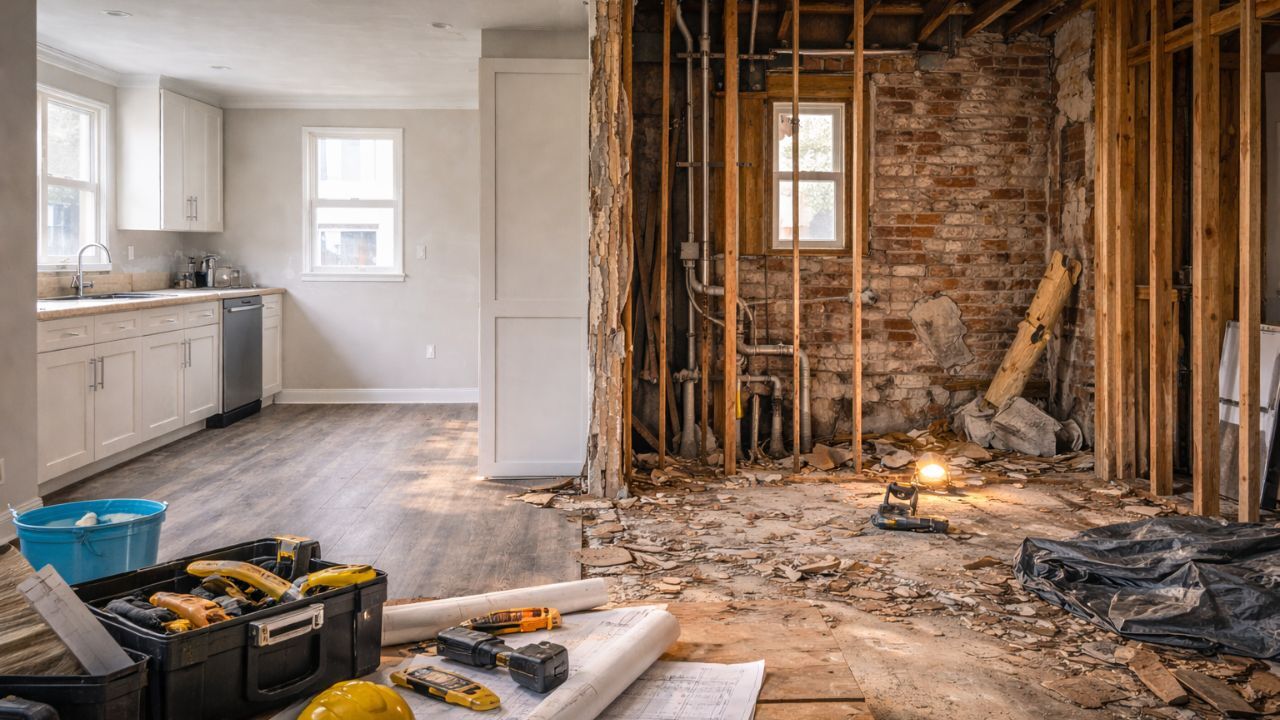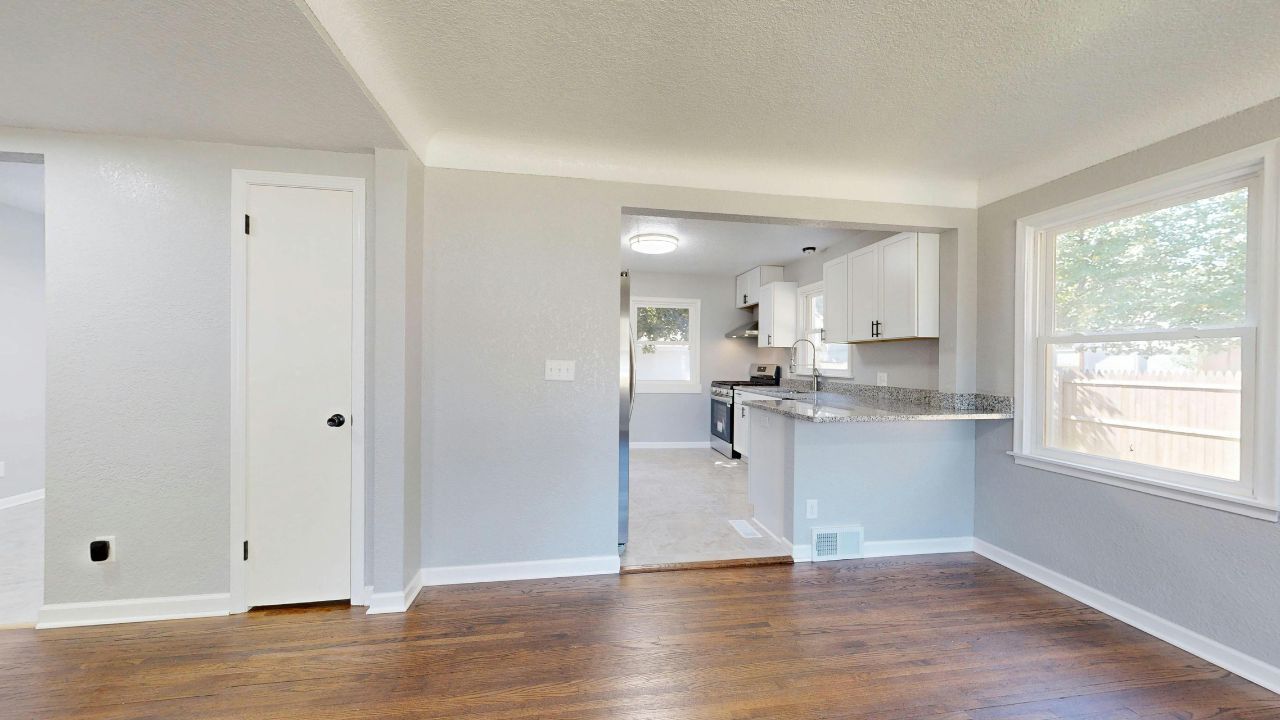 Fixer uppers attract buyers looking for value, personalization, and long term upside. The idea of transforming a property into something uniquely yours is compelling. However, not all renovation opportunities are created equal. The real skill in buying a fixer upper is distinguishing between manageable cosmetic upgrades and deeper structural or functional limitations that can quietly erode your budget and timeline.
Fixer uppers attract buyers looking for value, personalization, and long term upside. The idea of transforming a property into something uniquely yours is compelling. However, not all renovation opportunities are created equal. The real skill in buying a fixer upper is distinguishing between manageable cosmetic upgrades and deeper structural or functional limitations that can quietly erode your budget and timeline.
Cosmetic Versus Structural Changes
Paint, flooring, light fixtures, cabinet hardware, and landscaping are typically manageable improvements. These updates are visible, measurable, and easier to estimate financially. Structural modifications such as moving load bearing walls, relocating plumbing lines, replacing subflooring, or altering rooflines introduce complexity and risk. Once walls are opened, surprises often follow. Understanding where a project falls on this spectrum protects both your budget and your expectations.
Layout Efficiency Matters More Than Finishes
Even a dated home can function beautifully if the layout flows logically. Room placement, natural light exposure, storage access, and traffic patterns influence daily comfort more than surface materials. Awkward transitions between rooms, narrow hallways, or poorly positioned kitchens may require significant redesign to correct. Before focusing on finishes, evaluate whether the core layout aligns with modern living patterns and your personal lifestyle.
Mechanical Systems Tell the Real Story
Cosmetic flaws are visible. Mechanical issues are not. Roof condition, heating systems, plumbing integrity, electrical capacity, and foundation stability carry significant financial weight. A newly painted wall cannot compensate for outdated wiring or aging pipes. Inspections are critical when evaluating a fixer upper. Replacing major systems can quickly shift a promising deal into an expensive commitment.
The Energy Investment Factor
Renovation requires more than money. It requires emotional bandwidth. Decision fatigue, contractor coordination, permit timelines, and material delays can test even patient buyers. Some homeowners thrive on projects and transformation. Others find the process draining. Be honest about your tolerance for disruption before committing to a property that demands ongoing oversight.
A smart fixer upper purchase focuses on fundamentals first and finishes second. When structure, layout, and systems are solid, cosmetic updates become opportunity rather than risk. The best renovation projects start with strong bones and realistic expectations.
 Most buyers focus intensely on the house itself. Bedrooms, finishes, layout, and upgrades dominate attention. But long-term satisfaction often has less to do with the house and more to do with the immediate block around it.
Most buyers focus intensely on the house itself. Bedrooms, finishes, layout, and upgrades dominate attention. But long-term satisfaction often has less to do with the house and more to do with the immediate block around it. Curb appeal is often discussed in terms of landscaping, fresh paint, and updated fixtures. While those elements matter, the deeper principle at work is perception management. Exterior presentation shapes emotional response before a buyer ever crosses the threshold. By the time the front door opens, an opinion has already begun forming.
Curb appeal is often discussed in terms of landscaping, fresh paint, and updated fixtures. While those elements matter, the deeper principle at work is perception management. Exterior presentation shapes emotional response before a buyer ever crosses the threshold. By the time the front door opens, an opinion has already begun forming.
 Many buyers delay decisions while waiting for a home that checks every box. While patience is valuable, perfection often creates paralysis. Understanding the difference between standards and unrealistic expectations helps buyers move forward with confidence.
Many buyers delay decisions while waiting for a home that checks every box. While patience is valuable, perfection often creates paralysis. Understanding the difference between standards and unrealistic expectations helps buyers move forward with confidence. Many buyers start their search with a specific number in mind. Square footage. While size matters, it is rarely the deciding factor in long-term satisfaction. How space functions often matters far more than how much of it exists.
Many buyers start their search with a specific number in mind. Square footage. While size matters, it is rarely the deciding factor in long-term satisfaction. How space functions often matters far more than how much of it exists. Most buyers expect an instant emotional reaction when they walk into the right home. The idea of love at first sight is common, but in reality, many of the best homes do not create fireworks immediately. They create possibility, and that is often quieter.
Most buyers expect an instant emotional reaction when they walk into the right home. The idea of love at first sight is common, but in reality, many of the best homes do not create fireworks immediately. They create possibility, and that is often quieter.
 With rising utility costs and growing awareness around sustainability, many homeowners are looking for practical ways to improve energy efficiency. One of the most effective first steps is scheduling a home energy audit. A home energy audit is a professional evaluation of how your home uses energy and where improvements can be made to reduce waste, lower costs, and enhance comfort.
With rising utility costs and growing awareness around sustainability, many homeowners are looking for practical ways to improve energy efficiency. One of the most effective first steps is scheduling a home energy audit. A home energy audit is a professional evaluation of how your home uses energy and where improvements can be made to reduce waste, lower costs, and enhance comfort. When preparing to sell a home, homeowners have several paths to consider. One option that is becoming increasingly common is selling a property as-is. This means the home is listed and sold in its current condition, without the seller completing repairs or renovations before closing. While this approach can offer convenience, it is important to understand both the benefits and potential trade-offs before making a decision.
When preparing to sell a home, homeowners have several paths to consider. One option that is becoming increasingly common is selling a property as-is. This means the home is listed and sold in its current condition, without the seller completing repairs or renovations before closing. While this approach can offer convenience, it is important to understand both the benefits and potential trade-offs before making a decision.